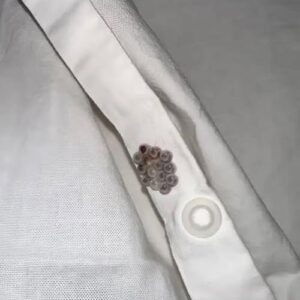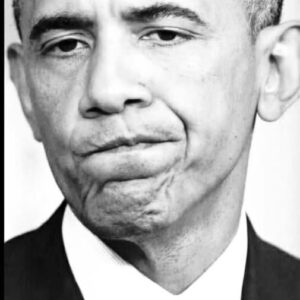When my son passed away at sixteen, the world dimmed in a way I never imagined possible. The colors of everyday life—sunlight through the kitchen window, the warmth of morning coffee, the sound of laughter—faded into a muted haze. I woke up each morning expecting his footsteps, his music, his voice, but all that came was silence.
My husband, Sam, processed it differently. He didn’t cry—not once that I saw. He stayed calm, collected, a pillar of quiet composure when everything around us was crumbling. Friends said I was lucky to have someone so strong. But his strength felt like distance. While I sobbed into my pillow at night, Sam would sit beside the window, staring into the dark, his eyes fixed on something I couldn’t see.
At first, I mistook his silence for indifference. Then, I resented it. I wanted him to scream, to break, to prove that our son’s absence tore him apart as much as it did me. But he never did. And slowly, our shared grief became two separate islands—close enough to see each other, too far to reach.
The Space Between Us
Grief changes everything—how you eat, how you sleep, how you see each other. Conversations turned into short exchanges about groceries or bills. The photo of our son on the mantle gathered dust because neither of us could bear to clean it or put it away.
Months passed like years. I tried therapy; he didn’t. I talked about “moving through the pain”; he talked about “managing it.” I began writing letters to our son every week, hoping that by putting words on paper, I could keep some connection alive. Sam never read them, though he’d sometimes glance at the envelope pile on my desk with a faint, unreadable expression.
The night we finally admitted it was over, there were no arguments, no accusations—just an understanding. He sat on one side of the couch, I on the other, and he said quietly, “We’ve both been trying to survive this in our own ways. Maybe it’s time we stop hurting each other for how we grieve.”
He packed his things the next morning. I didn’t stop him. And in a strange way, I think we both felt relief.
Life After Goodbye
After the separation, time became both an enemy and a balm. I moved into a smaller house, started volunteering at a youth center, and found small ways to keep my son’s memory alive. Every year on his birthday, I baked his favorite chocolate cake, lit a candle, and whispered a few words just for him.
Sam remarried a few years later. I heard through mutual friends that his new wife, Laura, was kind and patient. I was genuinely glad. It wasn’t bitterness I felt—just a quiet understanding that he had found the peace I once hoped we’d share together.
Still, there were moments when memories ambushed me—seeing a boy with the same haircut as my son, catching a whiff of his favorite cologne in a store. Grief, I learned, doesn’t leave; it simply changes shape.
The Call
Twelve years after our separation, a call came on a gray Tuesday morning. Sam had passed away.
The words landed softly but shattered something old inside me. He had been ill, I later learned—a heart condition he’d kept private from most people. I sat on the edge of my bed for a long time, my hands trembling around the phone. Even after all the years apart, I still thought of him as the man who once held my hand through every storm.
At his memorial, I stood quietly in the back, surrounded by unfamiliar faces who now made up his new world. His wife approached me afterward—tall, gentle, with eyes full of empathy rather than suspicion. “I’m glad you came,” she said softly. “He would’ve wanted that.”
I thanked her, unsure what else to say. I thought that would be the end of it. But two days later, she reached out again, asking if we could meet.
The Meeting
We met at a small café near the edge of town, the kind of place with chipped mugs and the smell of roasted coffee beans soaked into the walls. Laura arrived holding a small leather-bound notebook. Her hands trembled slightly as she set it on the table between us.
“Sam wanted you to have this,” she said.
My breath caught. The notebook was worn, the corners frayed, the cover creased with age.
“He started writing after your son passed,” she continued. “He called it his ‘quiet place.’ He never showed it to anyone—not even me—until near the end. He asked me to give it to you.”
I hesitated, afraid of what I might find inside. But curiosity—and love—won.
The first page was dated the week after our son’s funeral. The handwriting was unmistakably his—strong, deliberate, slightly slanted.
The Journal
“She cries at night. I hear her through the walls. I want to hold her, but I can’t without breaking. If I break, we’ll both fall apart.”
I felt tears sting my eyes. For years, I’d thought he was untouched by grief, untouched by loss. But here, in his own words, was the truth I’d never seen.
“He was my anchor. Every time I see his empty chair, I feel the floor tilt beneath me. But she needs someone steady, and I can’t be that if I drown too.”
Page after page, he poured out the emotions he never showed—the nights he sat awake, the guilt he carried for surviving, the words he wanted to say but couldn’t. There were letters to our son, too—messages filled with fatherly love and regret.
“I wish I’d told you how proud I was that night after your last game. I wish I’d hugged you longer. I wish I’d said I loved you out loud instead of assuming you knew.”
By the time I reached the last page, my tears had blurred the ink.
“If she ever reads this, I hope she forgives me for being quiet. My silence wasn’t emptiness—it was survival. Tell her I loved her. Always.”
The Moment of Understanding
When I looked up, Laura’s eyes were full of compassion.
“He talked about you often,” she said. “He said you taught him how to love deeply, even when love hurt. He never stopped caring. He just didn’t know how to show it.”
For a long time, neither of us spoke. The air between us felt sacred, filled with something beyond grief—understanding, maybe, or the peace that comes from hearing the truth at last.
“I used to think he didn’t feel anything,” I said quietly.
Laura smiled sadly. “He felt everything. He just didn’t know how to let it out.”
As we parted, she pressed my hand gently. “He’s at peace now,” she whispered.
I nodded. “So am I.”
What Healing Looks Like
That night, I sat at my desk with the journal beside me. I reread his words slowly, savoring every page. The pain that had once felt sharp now carried a strange sweetness—a reminder that even in silence, love had still existed between us.
I realized then that grief doesn’t divide people; it reveals the different ways we love. Some people build bridges with words, while others build them quietly with endurance. Sam had done both in his own way.
In the days that followed, I started writing again. This time, not letters to my son, but to Sam. Not to relive the past, but to thank him—for holding on when I couldn’t, for loving in his own language, and for leaving me something I didn’t know I needed: understanding.
Twelve Years Later
I keep his journal on the same shelf as our son’s framed photo. Sometimes, I open it just to trace the handwriting, to remind myself that love—real love—doesn’t vanish when life shifts. It stays quietly, like an ember that never dies out.
People often think closure means an ending. But for me, it became a bridge—a way to connect the woman I was with the one I’ve become. The hurt is still there, but softer now, wrapped in gratitude.
When I think of Sam, I no longer picture the silence between us. I picture the man who loved his son so deeply he couldn’t speak it, the husband who carried grief like a secret storm, and the soul who, even after death, gave me the gift of peace.
The Lesson He Left Behind
Love doesn’t always look like the movies. Sometimes it looks like restraint when you want to scream, like distance when you’re afraid of falling apart. And sometimes, it takes twelve years and a notebook full of unsent words to understand that silence can be love, too.
As I finish writing this, sunlight spills through the window, warm and golden—the color I thought the world had lost.
It’s back now. Maybe it never really left.
And that, I think, is what healing truly is.





